AITA for embarrassing my parents in family therapy?
At first glance, a family therapy session might seem like a safe space to untangle long-held tensions, but for this redditor, it’s become a stage for an even more complicated drama. A 15-year-old caught between the roles of a caring sibling and an unexpected parental surrogate, he paints a picture of a household where responsibilities are skewed and fun is in short supply. The session was meant to mend fences, yet it ended up exposing deep-seated issues and emotional boundaries that have long been ignored.
Navigating the choppy waters of family expectations, he finds himself criticized for daring to seek a little normal teenage enjoyment. Instead of the support one might expect, his honest words about feeling pressured and parentified have led to accusations of embarrassment. His story resonates with anyone who’s ever felt burdened by roles they never signed up for.
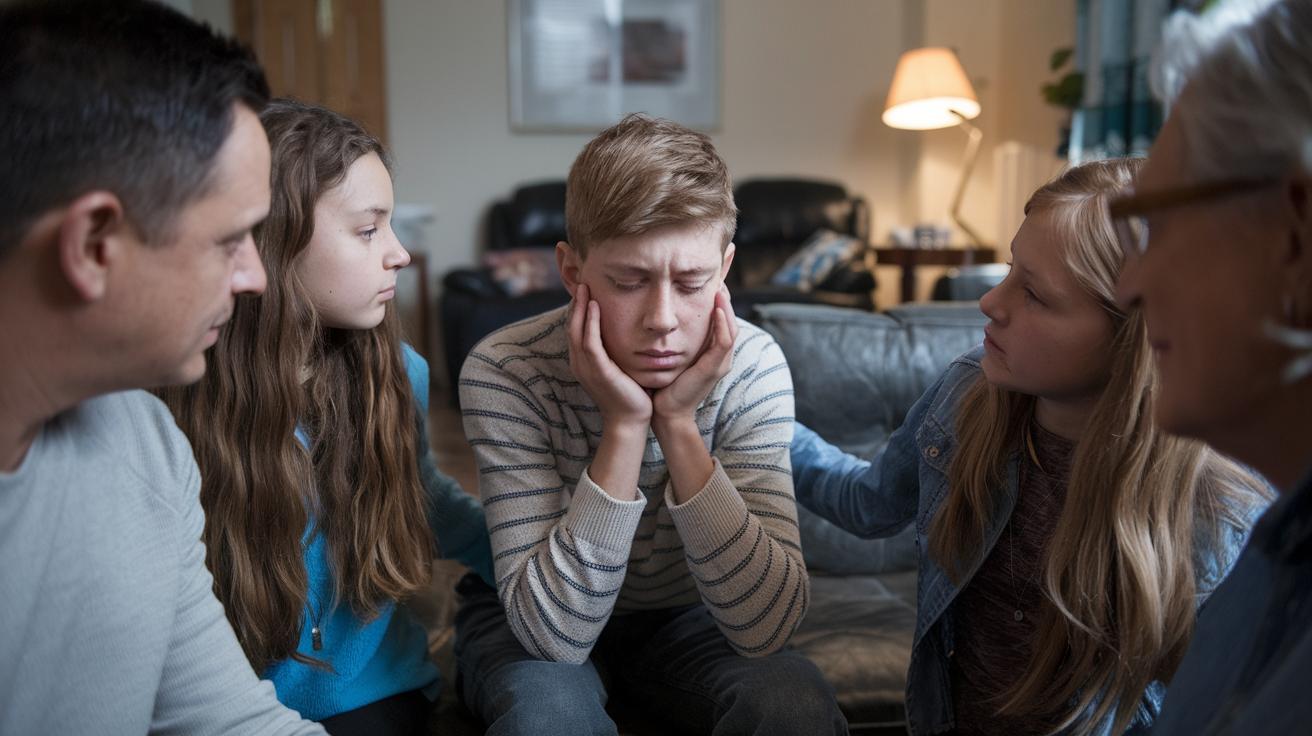
‘AITA for embarrassing my parents in family therapy?’
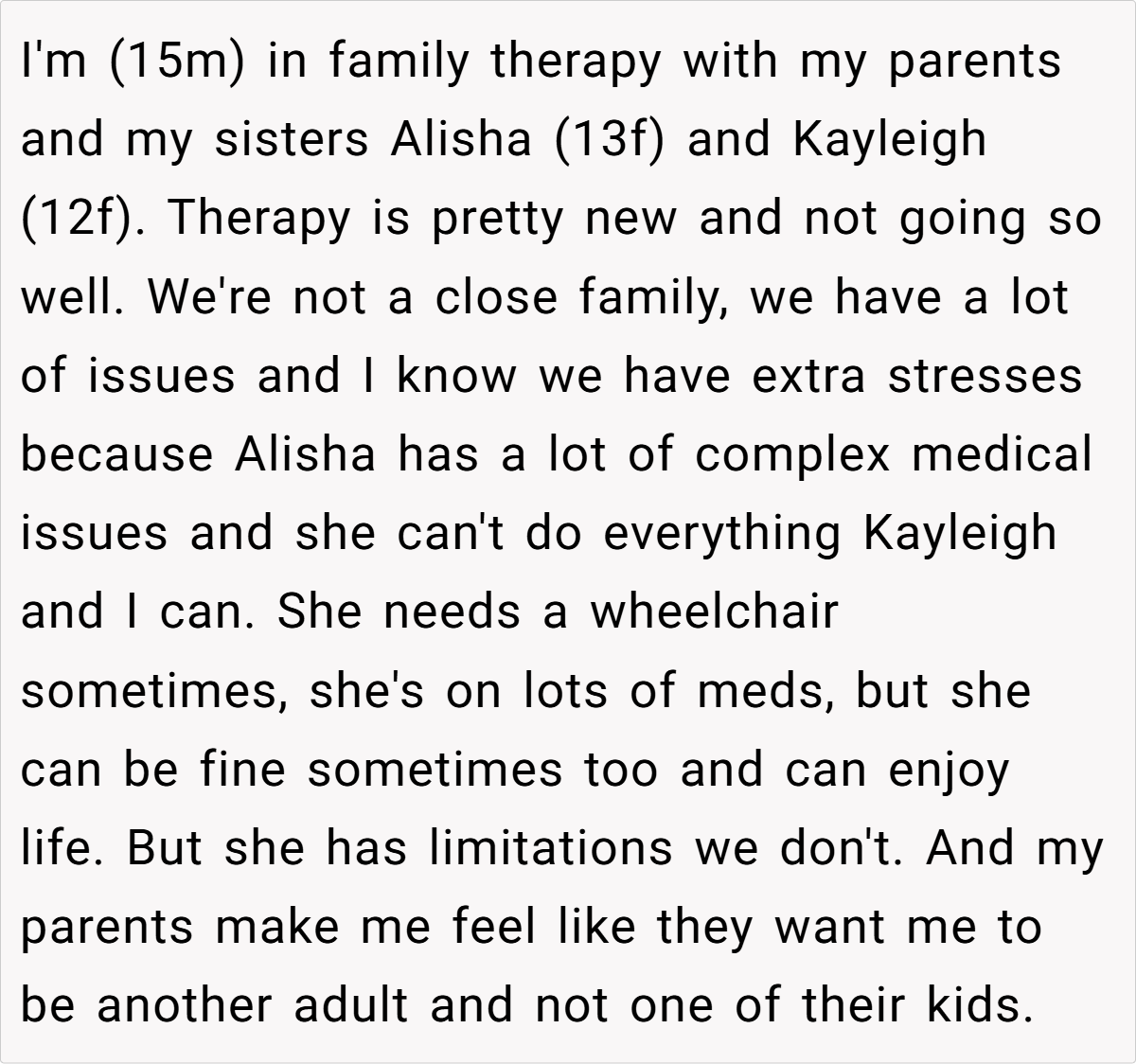

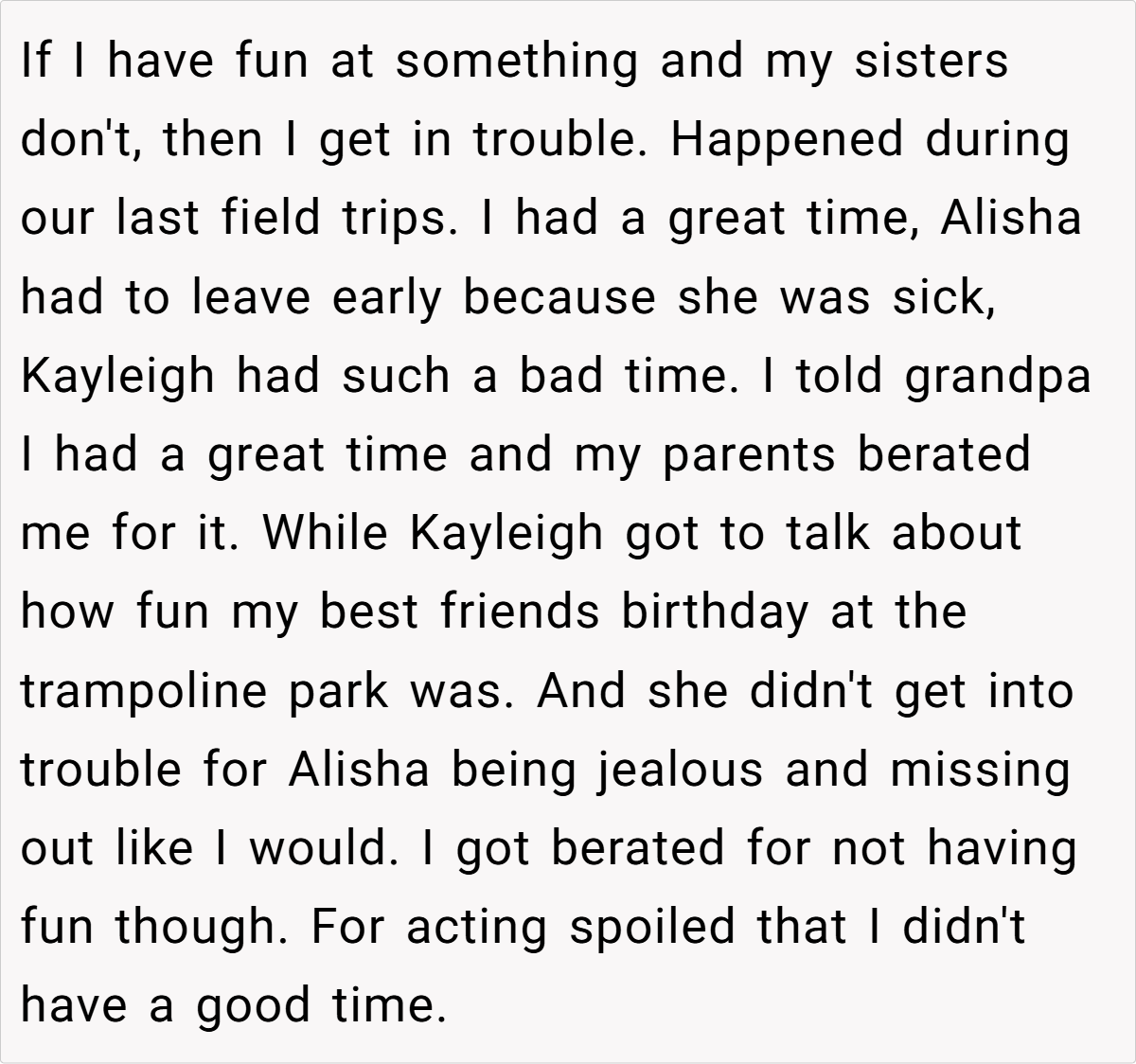
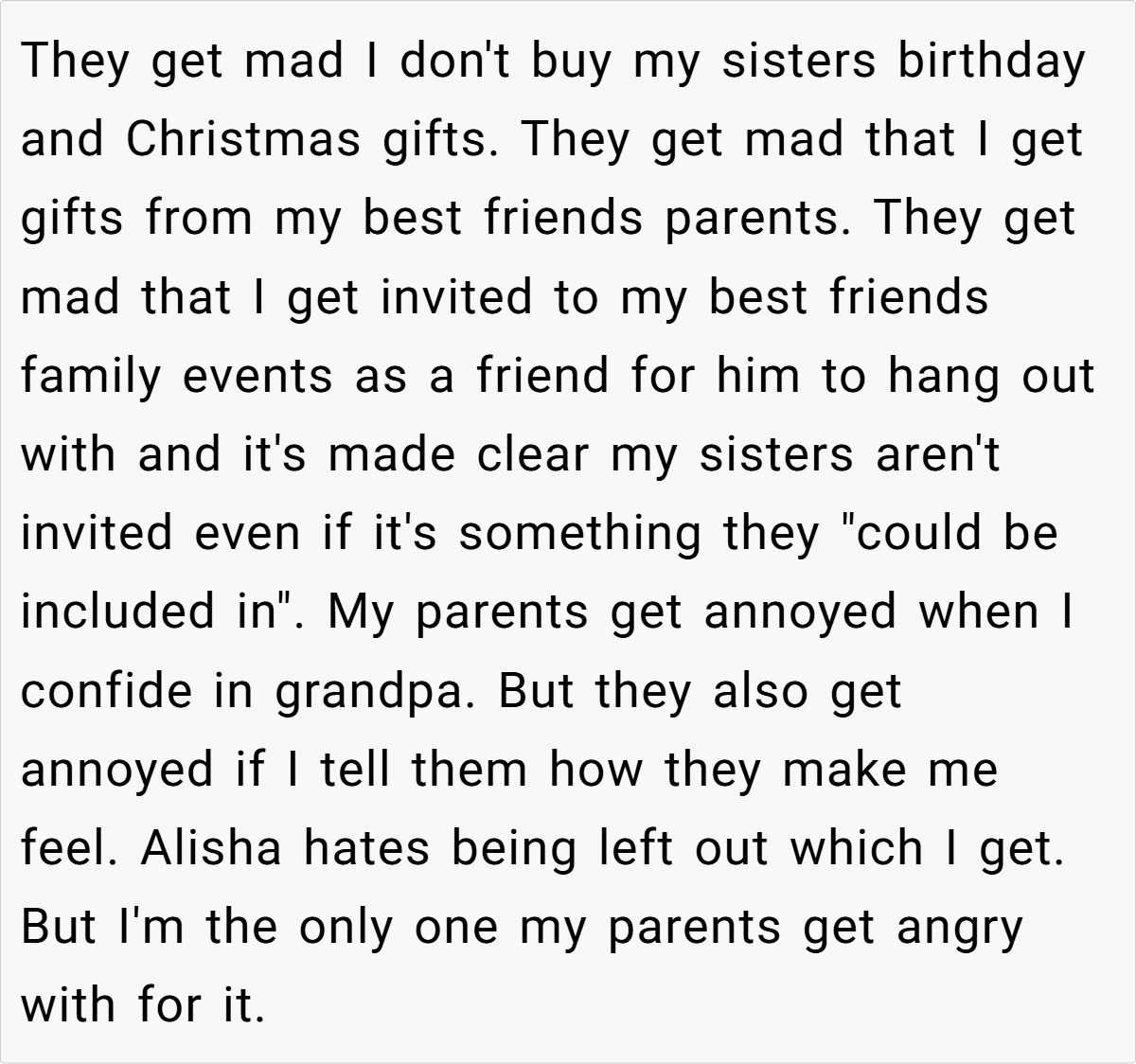
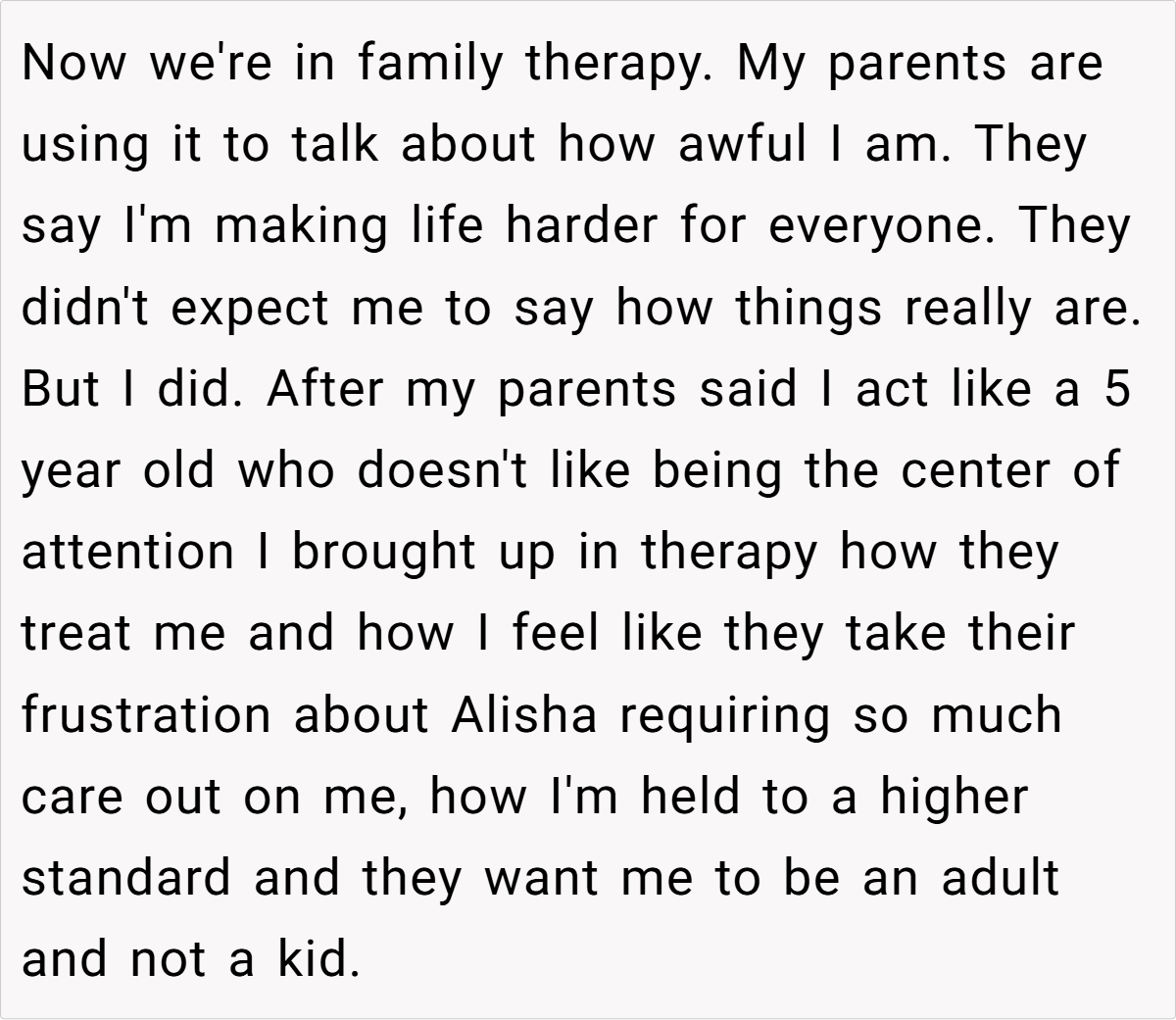
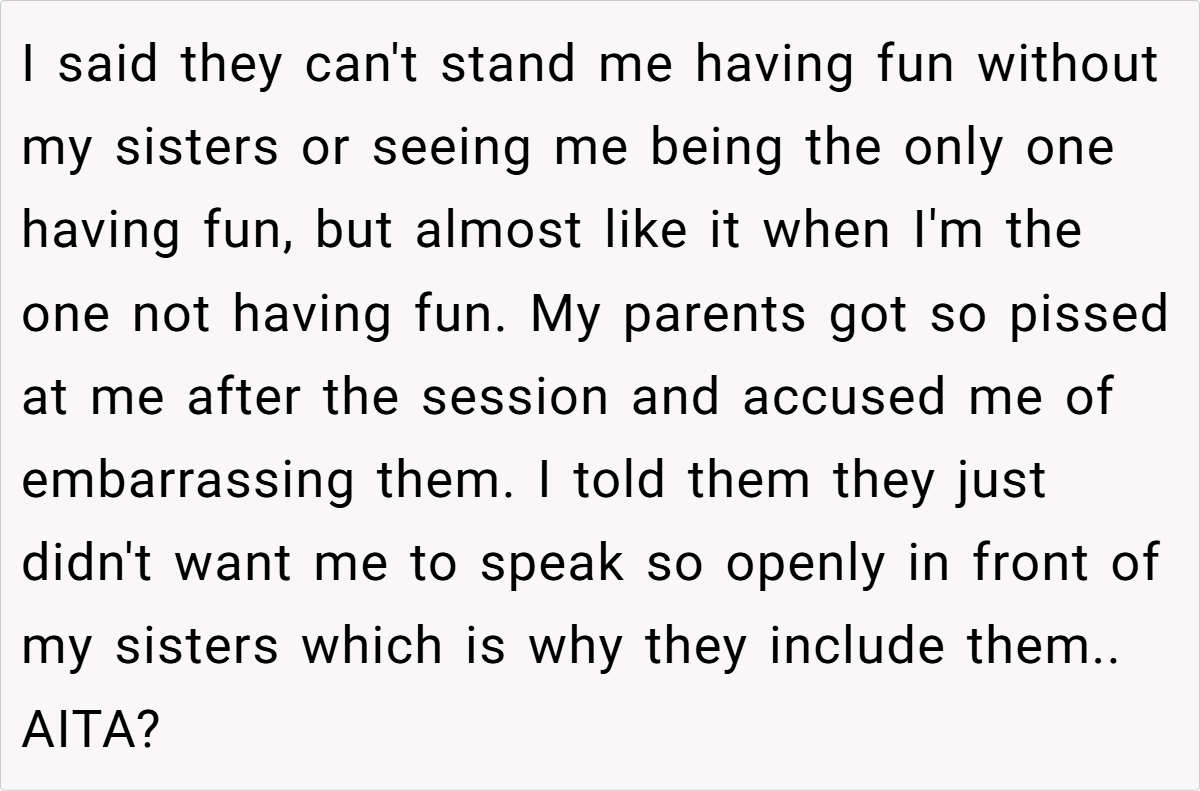
Family dynamics can be as unpredictable as a sudden summer storm. When a teenager is forced into an adult role—juggling household duties, sibling care, and personal sacrifice—the balance between childhood and responsibility is disrupted. Such parentification can affect emotional development and self-esteem, leaving young people feeling isolated and overwhelmed.
In this situation, the teen describes being sidelined from his own experiences while shouldering the burdens of caregiving. Constantly monitored and held to impossibly mature standards, he is expected to suppress his need for fun and autonomy. The resulting pressure not only stifles his social life but also jeopardizes his emotional well-being, making it hard for him to enjoy moments that should be part of a typical adolescence.
As Dr. Laura Markham, a clinical psychologist and parenting expert, once said, “Children are not mini adults; their primary job is to learn and grow. When we burden them with adult responsibilities, we risk their emotional well-being.” This quote from Aha! Parenting underscores the core issue: when a child is forced to fill in for parental roles, it can have lasting consequences on their mental health and development. Her insights remind us that preserving a child’s right to a carefree childhood is essential for long-term well-being.
Broadening the view, the challenges in this family reflect a larger social issue where emotional labor is inappropriately assigned to the youngest members. Studies in developmental psychology emphasize that such imbalances can lead to chronic stress, anxiety, and difficulties in forming healthy relationships later in life. It’s a cautionary tale about the importance of boundaries and the need for parents to reclaim their roles as caregivers, not as inadvertent taskmasters.
Ultimately, the solution may lie in honest dialogue and clear-cut boundaries. The therapist’s role is pivotal, not only to validate the teenager’s feelings but also to help the parents understand the unintended harm of their actions. Encouraging self-care and establishing realistic expectations could pave the way for healthier interactions and grant the teen the freedom to just be a kid.
Check out how the community responded:
Here are some hot takes from the Reddit community—candid, humorous, and refreshingly blunt. The responses range from sympathy for the teen to outright criticism of the parental approach, with many echoing the sentiment that no child should bear such burdens.
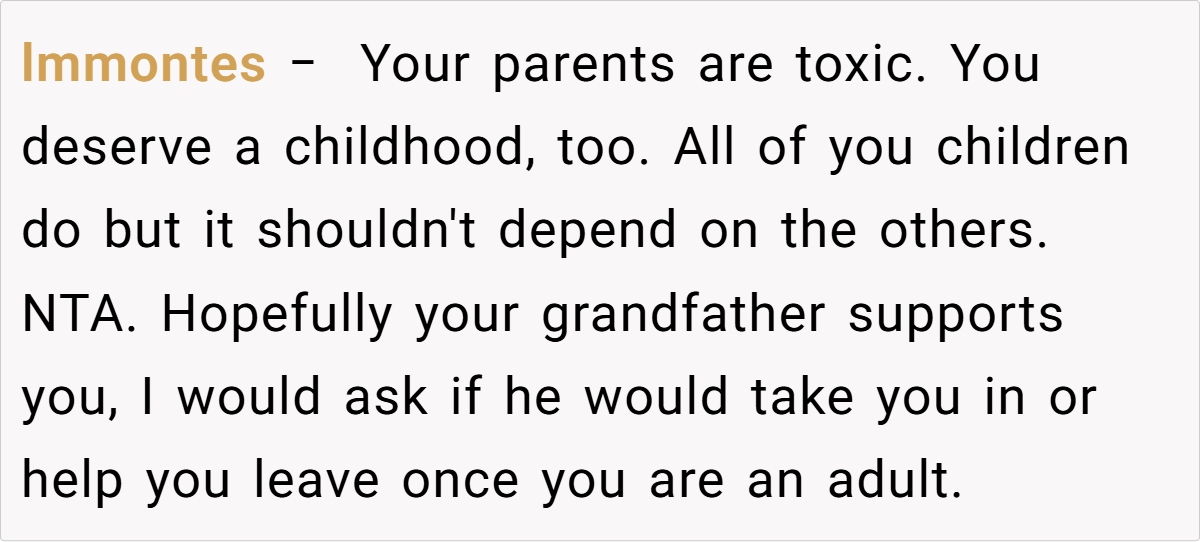
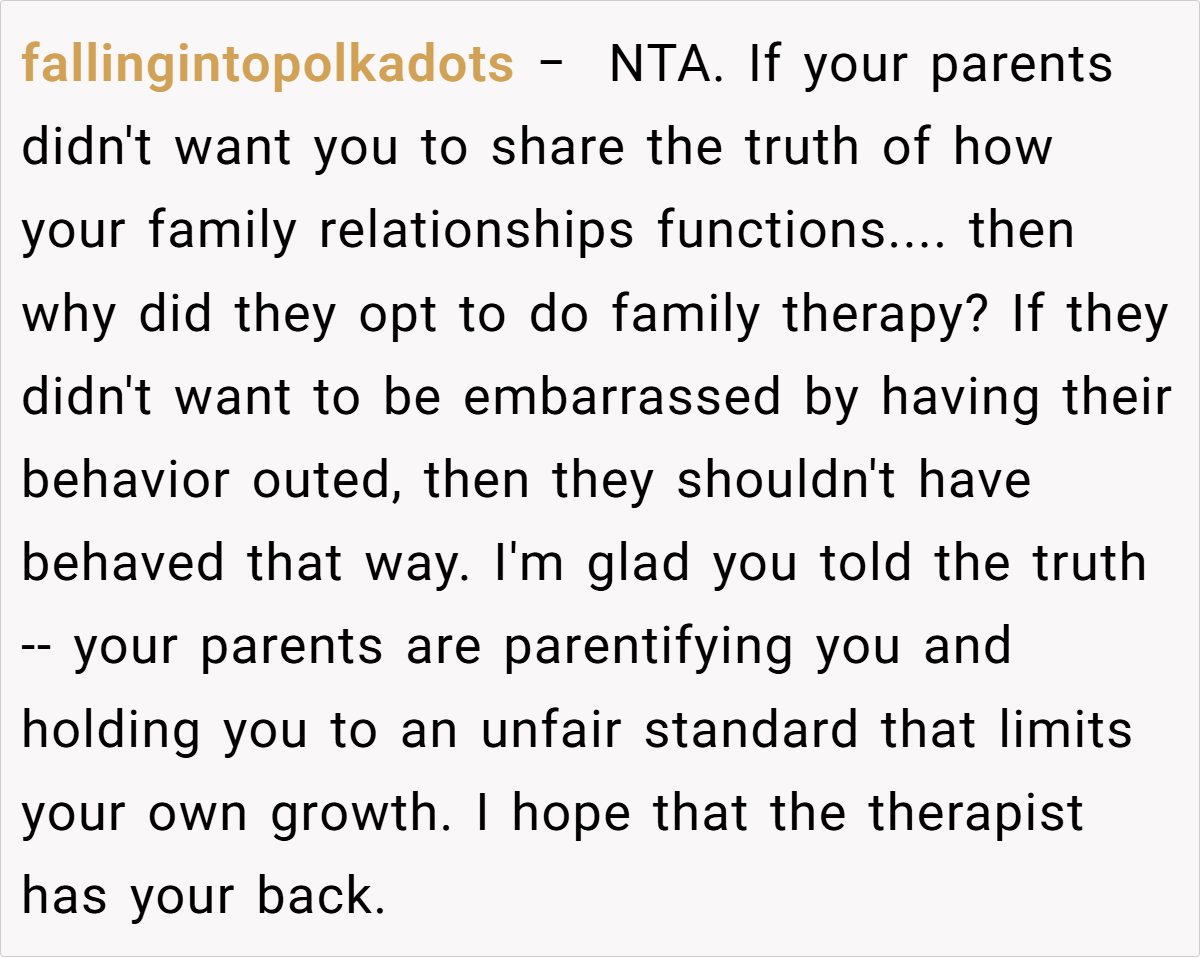

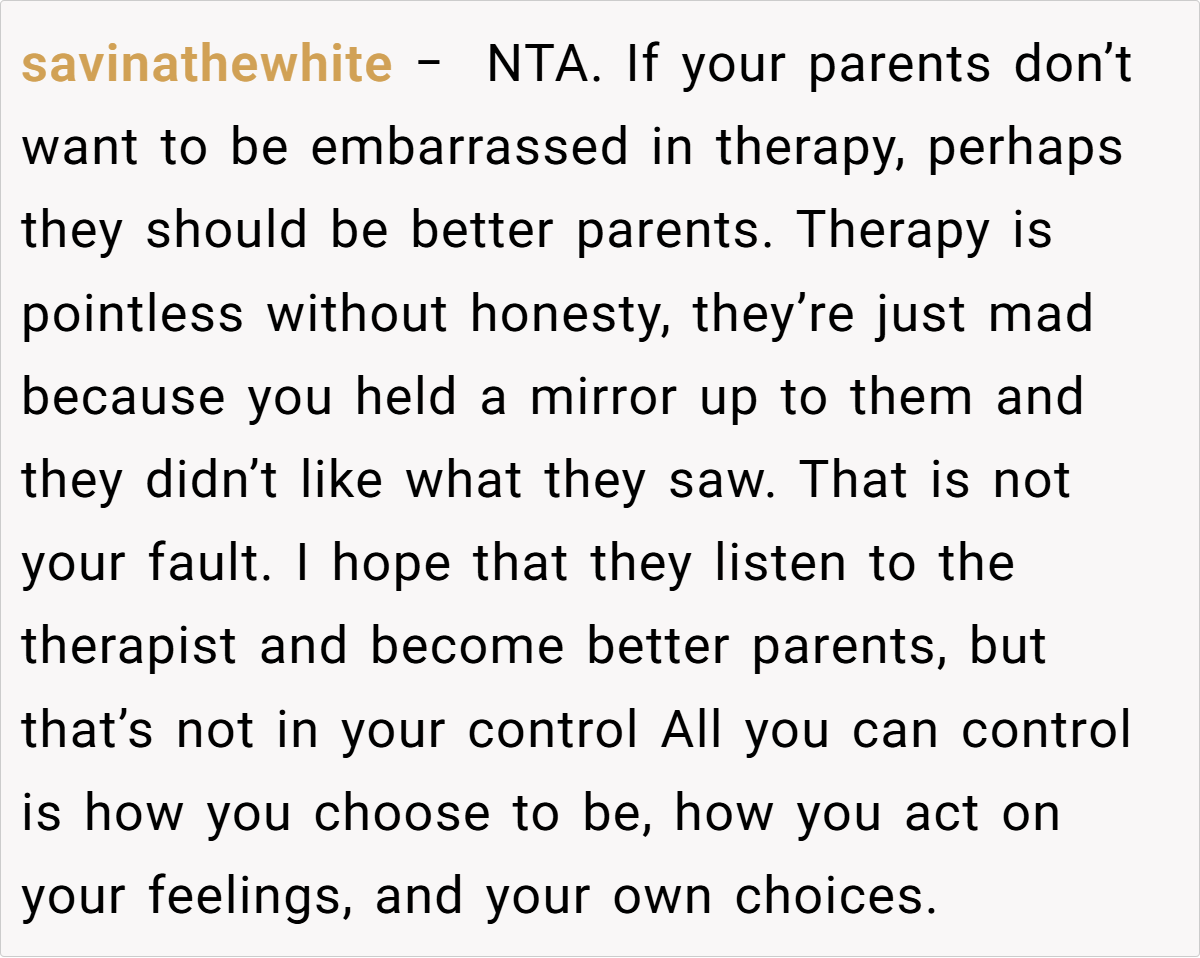
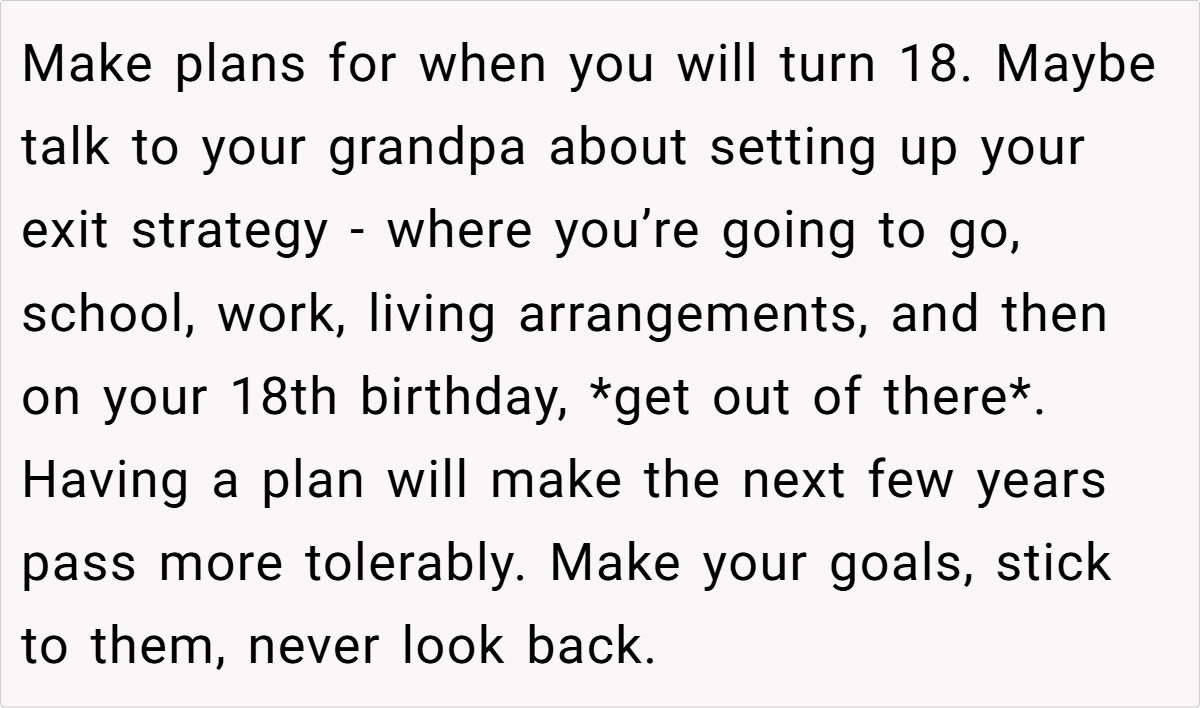

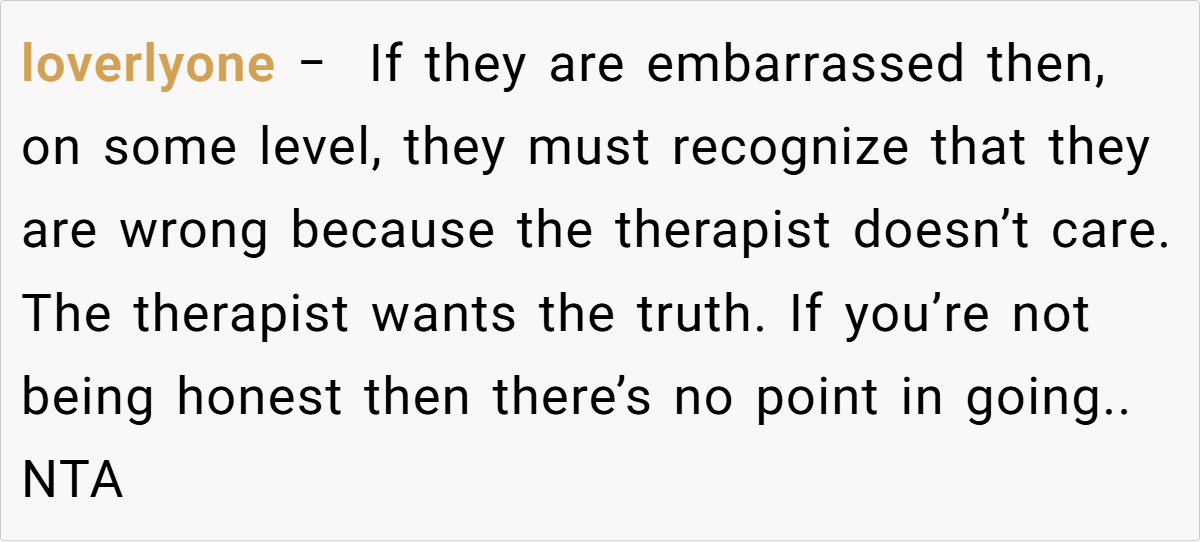
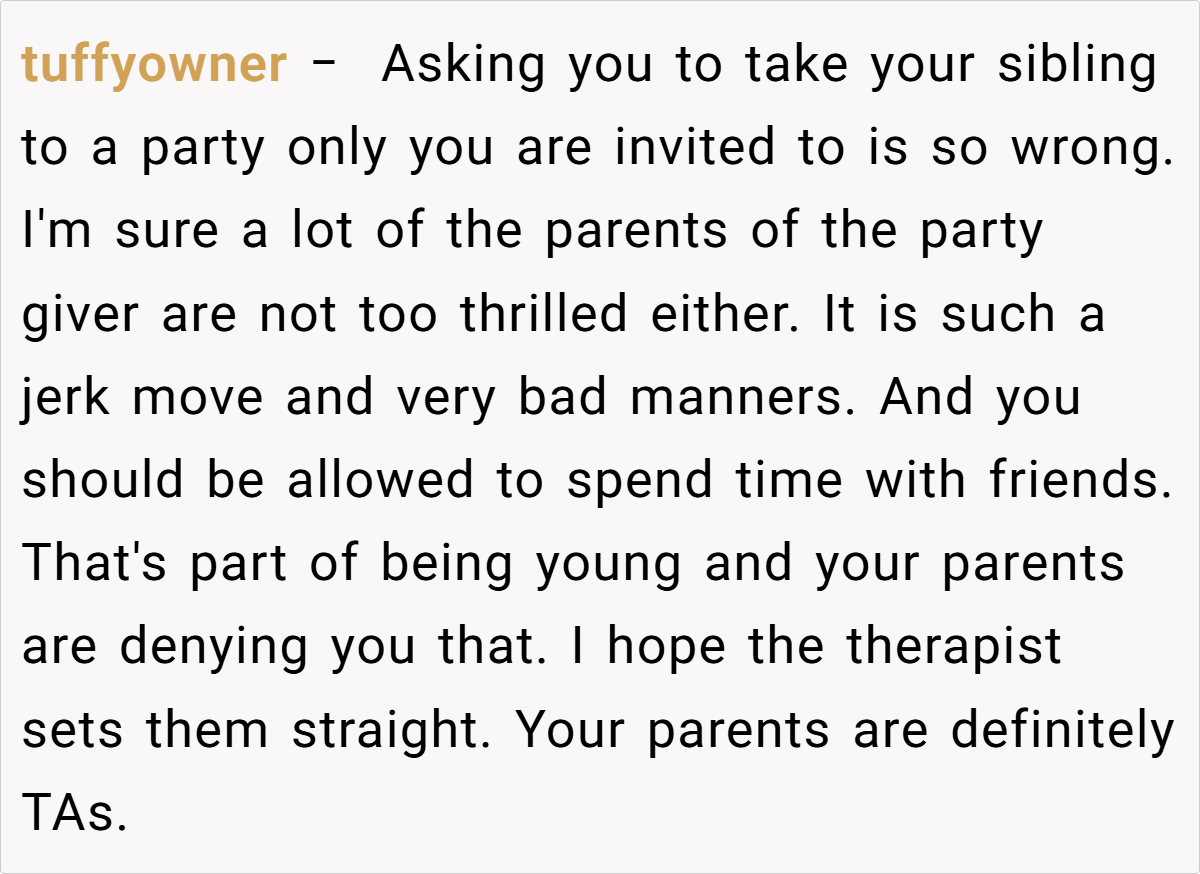
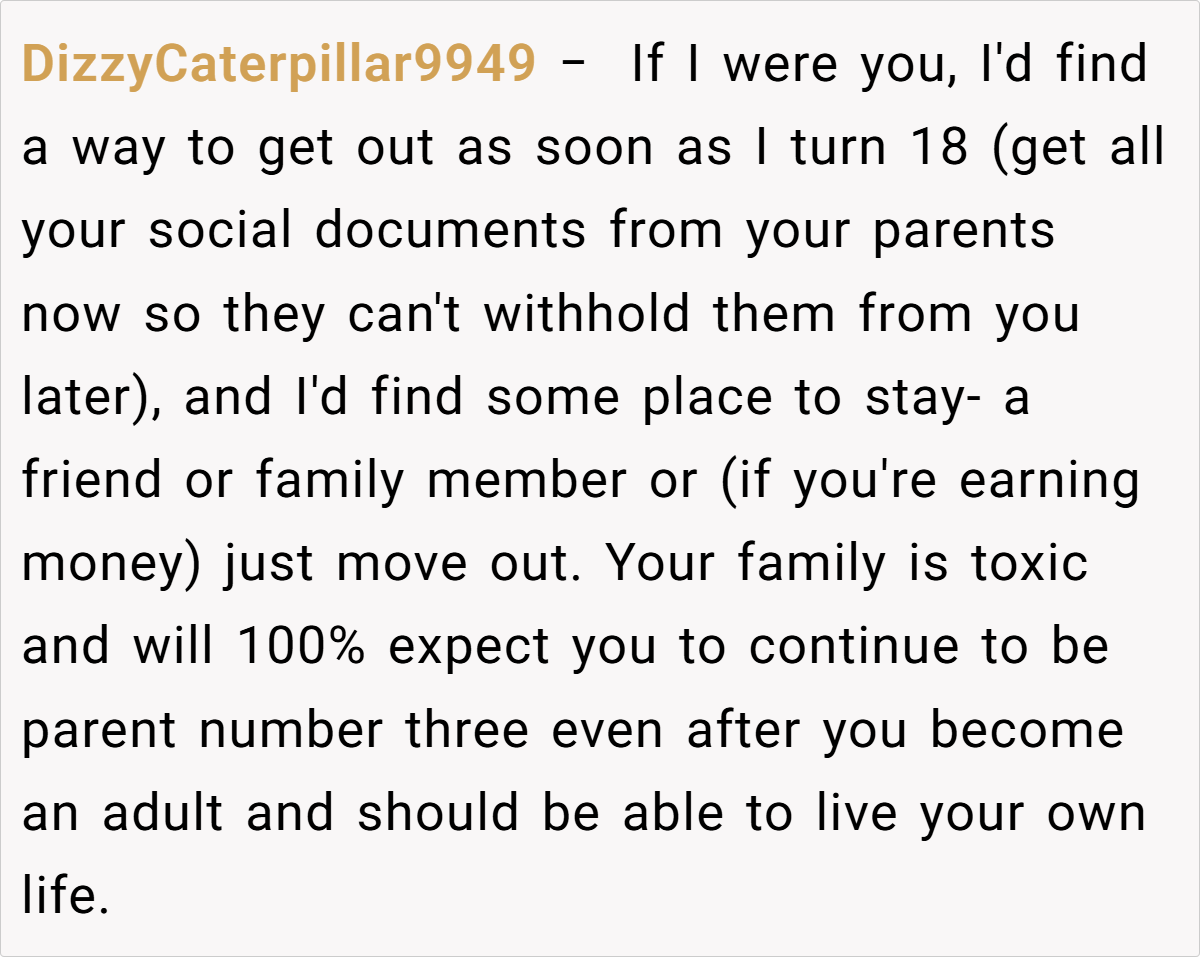
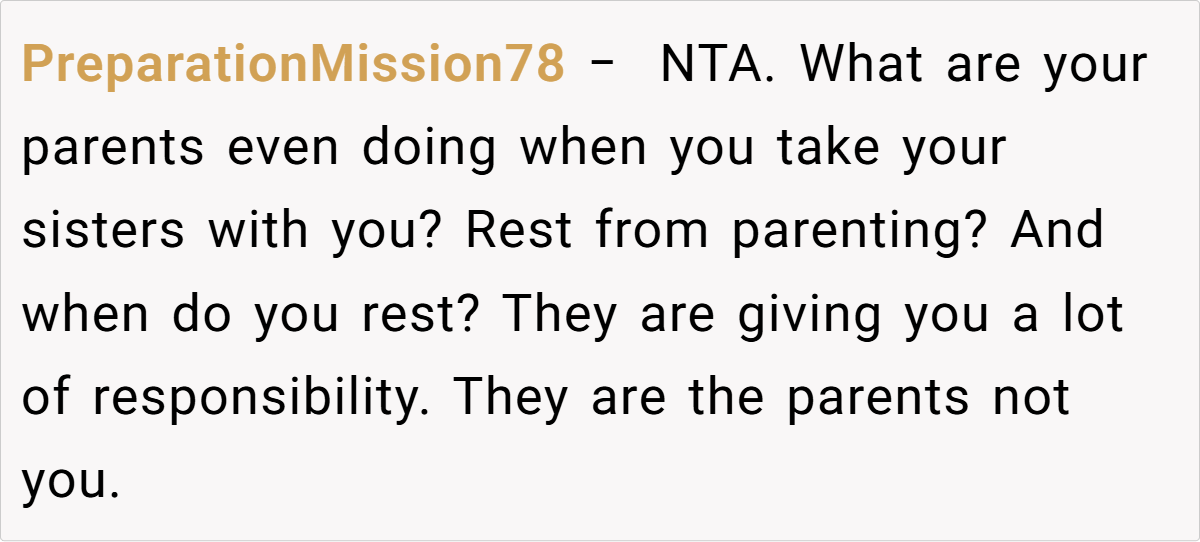
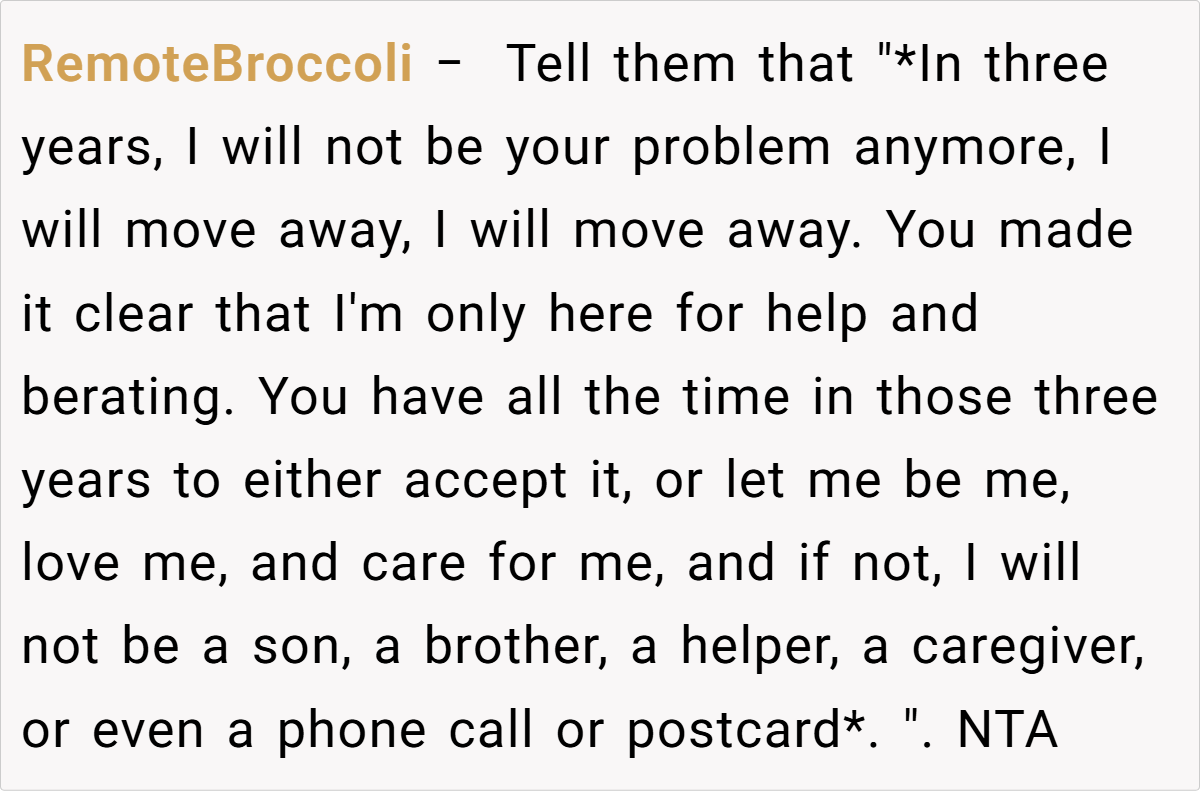
In conclusion, this story shines a light on the challenges of balancing family duty with personal growth. It poses tough questions about what it means to let a child be a child in a world that sometimes demands too much. What do you think—should there be strict limits on a child’s responsibilities within the family? How can therapy truly help reshape these dynamics? Share your thoughts and experiences, and join the discussion on finding that delicate balance between caring and overburdening.

